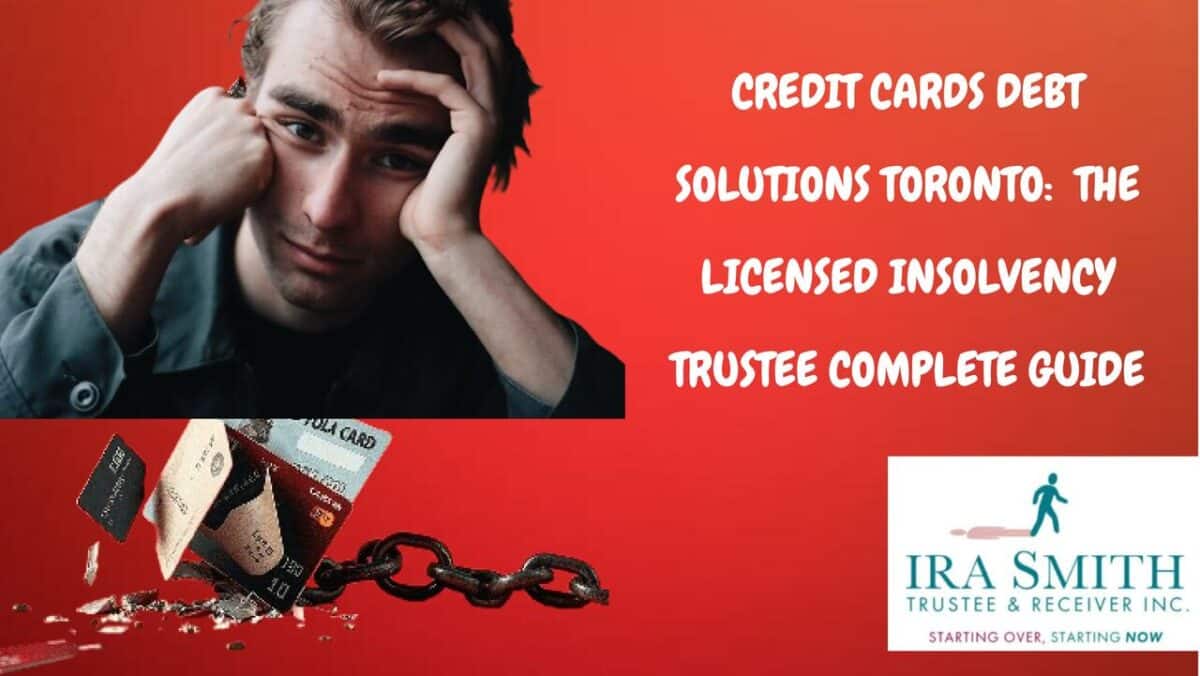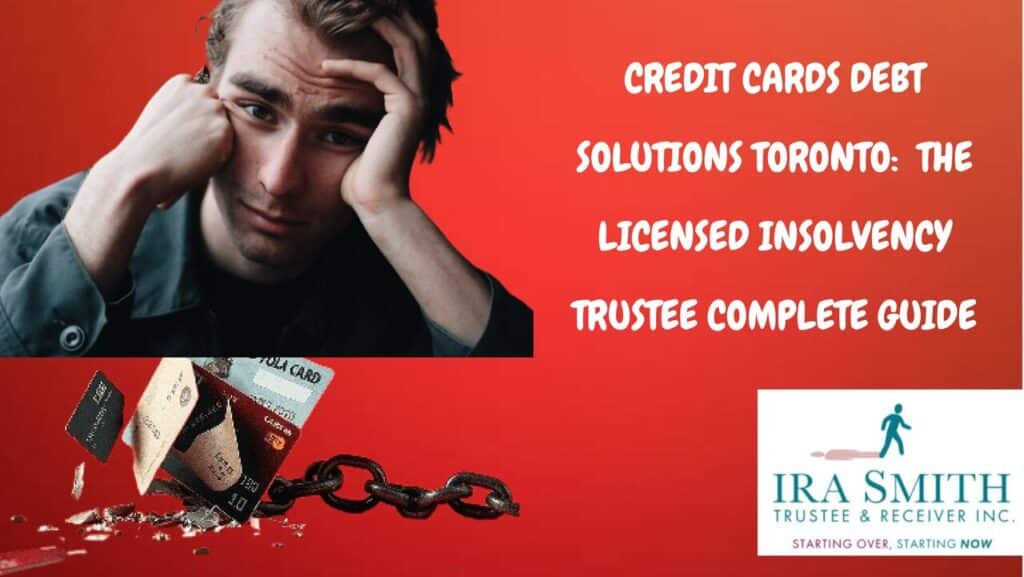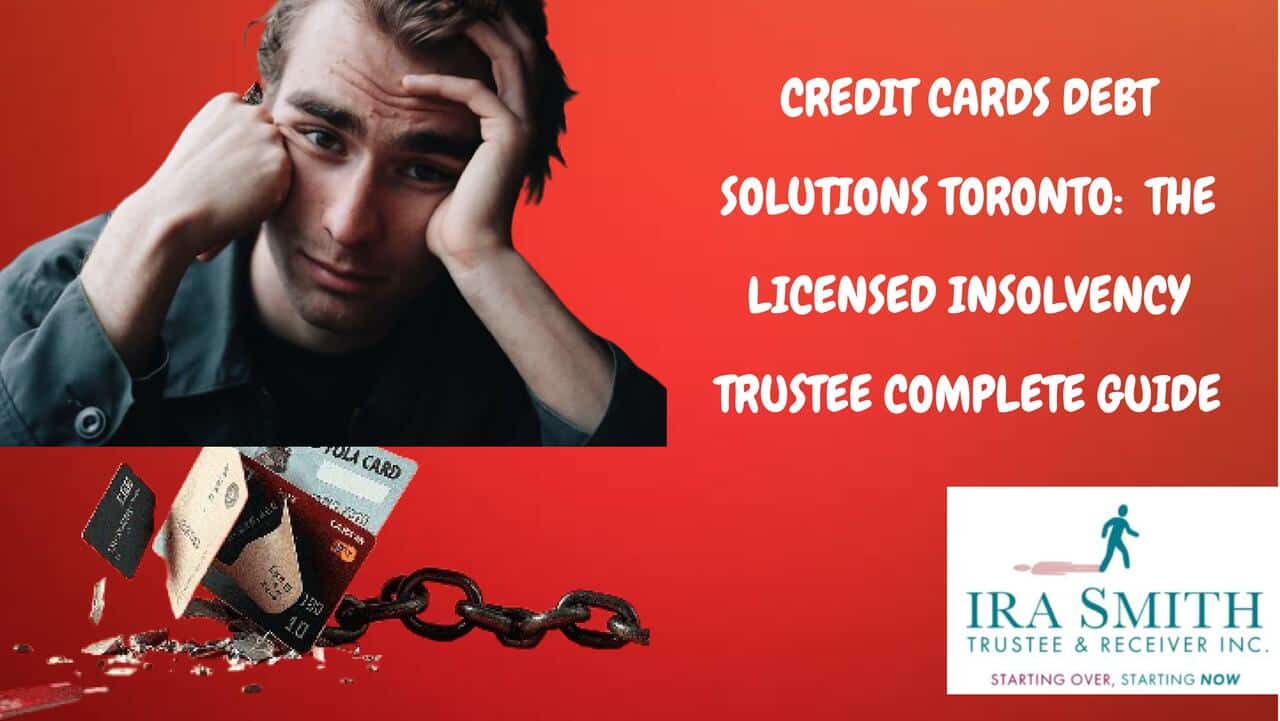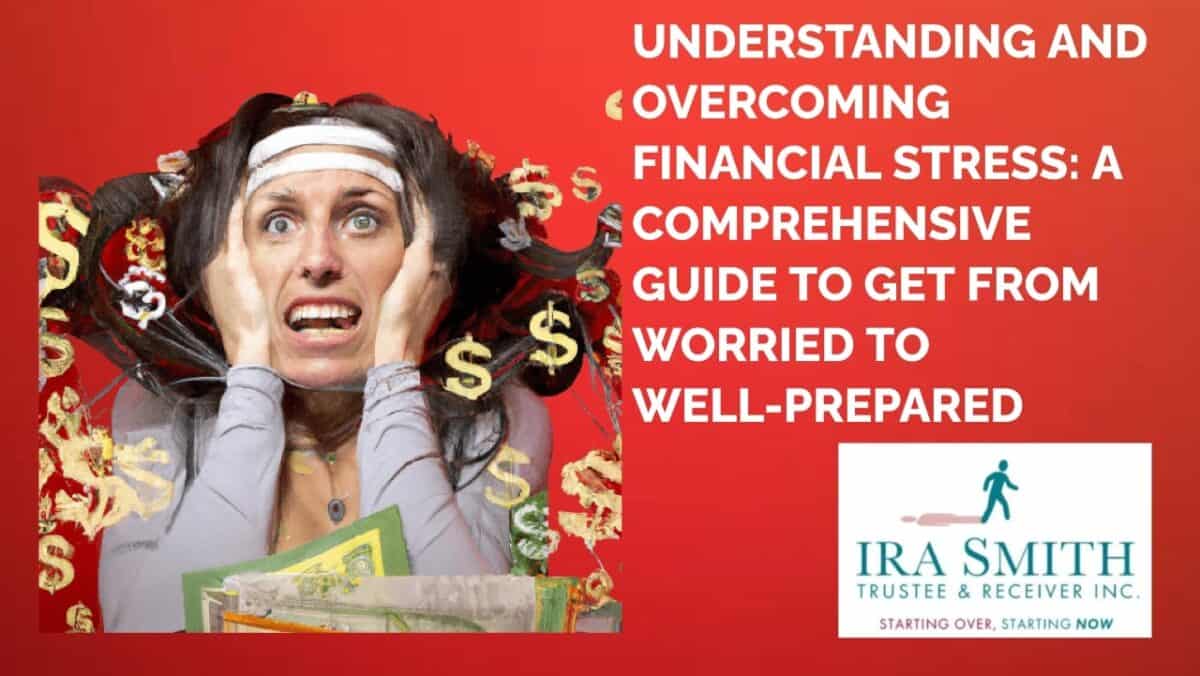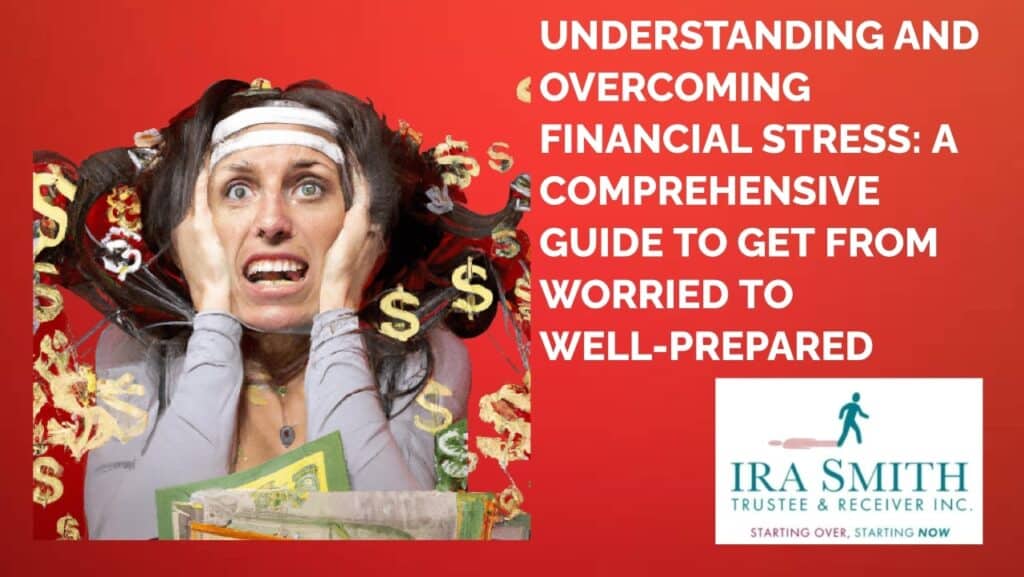The Greater Toronto Area is facing its worst business debt crisis in decades. As a licensed insolvency trustee who has helped many GTA businesses navigate financial challenges, I’m seeing alarming trends that every business owner needs to understand.
The GTA Business Landscape: Canada’s Economic Powerhouse Under Pressure
Toronto is Canada’s business and financial capital. It is the second-largest financial centre in North America. Our diverse economy spans technology, manufacturing, retail, hospitality, and professional services. This diversity usually protects us during downturns, but today’s debt crisis and the need for GTA business debt relief are hitting all sectors.
The IBISWorld Ontario Economic Overview report shows the numbers that tell the story:
- Commercial banking generates $117.9 billion in revenue
- Retail trade employs 884,368 people in Ontario
- Professional services support 562,343 workers
- Manufacturing provides 560,630 jobs
Yet despite this economic strength, a June 2025 IPSOS poll found that only 26% of Toronto residents say our economy is in good shape. Most concerning? 41% believe we’re heading in the wrong direction – away from economic prosperity.
How COVID-19 Started Toronto’s Debt Crisis
The Initial Shock That Changed Everything
When COVID-19 hit in March 2020, Toronto’s downtown core emptied overnight. Restaurants, hotels, retail stores, and service businesses saw customers disappear. Some sectors lost 25% of their business immediately.
The Canadian government responded with the Canada Emergency Business Account (CEBA) program. The Government of Canada has reported that over 898,000 Canadian businesses received $49 billion in emergency loans. At the time, this felt like a lifeline.
But here’s what many business owners didn’t realize: CEBA wasn’t free money. It was a loan with a delayed payment schedule.
Permanent Changes That Hurt Businesses
COVID-19 didn’t just create a temporary problem. It permanently changed how people work and shop:
- Remote work became permanent – Downtown Toronto office vacancy hit 18.2%
- Online shopping exploded – Many customers never returned to physical stores
- Business travel disappeared – Hotels and restaurants lost corporate clients
- Consumer habits shifted – People became more price-conscious and cautious
These weren’t temporary changes. They represent a “new normal” that many businesses still struggle to adapt to.

Current State of the Debt Crisis: The Numbers Are Alarming
The CEBA Cliff Hit Hard
Business failures in Canada jumped by 87.2% in early 2024 – the biggest increase in 37 years. This debt crisis spike happened right after the CEBA loan forgiveness deadlines passed.
Here in Toronto, CAIRP stated that GTA business insolvency rates climbed from 0.4 per 1,000 businesses in 2021 to 0.7 in 2023. While that sounds small, it represents hundreds of local businesses closing their doors because of the debt crisis.
Most Failures Are Permanent Closures
Unlike consumer debt problems, which often involve payment plans, business failures are mostly bankruptcies. This means permanent closure, not restructuring. Business owners are giving up entirely rather than trying to reorganize.
Rising Delinquencies: A Warning Sign of Worse to Come
The debt crisis isn’t just about businesses that have already failed. Over 309,000 Canadian businesses missed at least one credit payment in early 2025 – that’s 11.3% of all businesses with credit.
For GTA businesses, these are some missed payment rates:
- Restaurants and hospitality: 16.9%
- Retail stores: 13.2%
- Overall business loans 60+ days overdue: 3.4%
Ontario leads the country in business payment debt crisis problems, with an 18.8% increase year-over-year.
Why Businesses Can’t Pay Their Bills
Customer spending is down. The average consumer cut credit card spending by $107 per month in early 2025. When your customers have less money, your revenue drops.
Operating costs keep rising. Food costs are up 5.8%, rent up 6.0%, and wages up 4.8%. Profit margins are getting squeezed from both sides.
Household debt is crushing consumers. Canadian consumer debt hit $2.55 trillion. Ontario homeowners saw mortgage payments jump by over $680 monthly after renewal. When families are financially stressed, they stop spending on non-essentials.
CEBA loans are now due. As of January 19, 2024, 161,000 businesses still owed $7.8 billion in CEBA loans. Interest started charging at 5% annually, turning “emergency help” into another monthly payment. Outstanding CEBA loans are due for full repayment on or before December 31, 2026.
New Regulatory Pressures Adding to Business Costs
While the government talks about cutting red tape, Toronto businesses face new municipal-level regulations that add costs:
New Rules Taking Effect
- Toronto nightclub licensing changes (January 2025)
- Digital platform worker protections (July 2025) – affects delivery and ride-share businesses
- New building codes (January 2025) – impacts construction companies
- “Renoviction” bylaws (July 2025) – add costs for landlords
- Civil litigation procedure changes – increases legal costs
Each regulation may be well-intentioned, but they all add compliance costs when businesses can least afford them.
The Pandemic’s Effects Still Linger
Consumer Behaviour Changed Forever
In our practice, we see businesses still struggling with permanent shifts in customer behaviour:
Customers shop differently now:
- More online shopping, less in-store browsing
- Greater focus on local businesses
- More price-conscious decision-making
- Delayed major purchases (cars, appliances, travel)
- Higher expectations for health and safety
Businesses must operate differently:
- Heavy investment in technology and e-commerce
- Flexible work arrangements affect office space needs
- Enhanced health and safety measures
- More resilient supply chains
- Higher service level expectations
The Technology Investment Burden
Every business now needs robust online capabilities. This means ongoing costs for:
- E-commerce platforms
- Cloud-based systems
- Process automation
- Cybersecurity
- Staff training
For businesses already struggling with a debt crisis, these necessary investments create additional financial pressure.

Economic Pressures: The Double Hit of Recession and Inflation
Inflation Squeezes Profit Margins
Even though headline inflation dropped to 3.8% nationally, key business costs remained high:
- Food prices: up 5.8%
- Shelter costs: up 6.0%
- Overall consumer prices: up 11.4% over two years
Toronto businesses face a cruel math problem: costs rise faster than what customers can pay.
Recession Fears Become Reality
Ontario’s economic growth fell to just 0.8% in 2025, with unemployment rising for eight straight quarters to 7.5%. When unemployment rises, consumer confidence falls, and spending drops further.
The vicious cycle: Higher costs → Higher prices → Fewer customers → Lower revenue → Unable to pay debts
Tightening Credit Markets Make Everything Worse
High interest rates created a credit crunch that hit businesses hard:
Borrowing became expensive: 63% of businesses say high interest rates prevent expansion or investment.
Credit demand dropped: 6% fewer businesses applied for new credit in early 2025. New credit card applications fell 10.3%.
Consumer credit tightened: When customers can’t get credit, they spend even less at your business.
Mortgage renewal shock: Ontario homeowners face mortgage renewal shocks. Payments increase by an average of $680 monthly. This leaves less money for extra spending.
Managing Financial Crises: What Works?
Cash Flow Management Must Be Daily
In this debt crisis, managing cash flow isn’t a monthly task – it’s a daily survival skill.
Track money every day:
- Check bank balances each morning
- Use a 13-week cash flow forecasting financial model
- Know exactly what’s due when
- Plan every payment carefully
Speed up money coming in:
- Accept all payment methods (cards, e-transfer, mobile)
- Offer discounts for quick payment (2% for 10 days)
- Call overdue customers personally
- Send invoices immediately
Slow down money going out:
- Pay critical suppliers first (those who could shut you down)
- Use electronic payments to control timing
- Negotiate payment plans before you’re in trouble
- Consider temporary hour reductions before layoffs
Strategic Payment Prioritization
When cash is tight, not all debts are equal. Here’s the priority order I recommend:
- Payroll and source deductions (CRA will shut you down)
- Critical suppliers (those who keep you operating)
- Rent and utilities (you need a place to operate)
- Secured loans (they can seize collateral)
- Unsecured loans and credit cards (last priority)
Strategies for Addressing the Debt Crisis
Debt Restructuring Options That Work
Informal arrangements: Sometimes you can negotiate with creditors before formal proceedings. Recent success: a dining establishment reduced its monthly payments from $12,000 to $4,000.
Consumer proposals: If you’ve personally guaranteed business debts, this can reduce personal liability by up to 80%.
Business proposals: For companies, a formal proposal can reduce payments to all creditors simultaneously, thereby eliminating a debt crisis.
Strategic bankruptcy: Sometimes, closing one business cleanly allows you to start fresh without old debts following you.
Asset Management Approaches
Smart asset management can generate cash and reduce the debt crisis:
Sale-leaseback arrangements: Sell equipment or property, then lease it back. This generates immediate cash while keeping operational assets.
Asset liquidation: Sell non-essential assets. That unused equipment or excess inventory can become debt payments.
Intellectual property monetization: You can make money from intellectual property by licensing your processes, customer lists, or trademarks for ongoing income.
Real estate optimization: Consider subleasing unused space, downsizing, or moving to cut overhead costs.

Closing the Funding Gap: Where to Find Money
Government Programs Still Available
Canada Small Business Financing Program:
- Up to $1 million in loans
- Government backs 85% of lender risk
- Better rates than regular business loans
- Available through most banks and credit unions
Business Development Bank of Canada (BDC):
- Patient capital for struggling businesses
- Industry-specific expertise
- Flexible repayment terms
- Will work with businesses other lenders won’t touch
Ontario-specific programs:
- Advanced Manufacturing and Innovation Competitiveness (AMIC)
- Canadian Digital Adoption Program (CDAP)
- Various regional development funds
Alternative Financing When Banks Say No
Invoice factoring: Sell your accounts receivable for immediate cash (typically 80-90% of invoice value).
Merchant cash advances: Get cash now based on future credit card sales (expensive but fast).
Peer-to-peer lending: Online platforms connect you directly with individual investors.
Revenue-based financing: Repayments are based on monthly revenue rather than fixed payments.
Crowdfunding: Crowdfunding works well for businesses that serve customers directly and have strong stories.
Learning from Denmark: How Copenhagen Handles Debt Better Than North America
Denmark, especially Copenhagen, does things differently – and better in many ways.
As a licensed insolvency trustee, I’ve seen what works and what doesn’t. Denmark’s approach offers real lessons for Canadian businesses struggling with a debt crisis.
How Denmark’s Government Manages Money (And What Businesses Can Learn)
Denmark keeps things simple and clear when managing government debt. Here’s what they do right:
They Have Clear Fiscal Oversight Rules In Denmark everyone knows who’s responsible for what. The Finance Minister makes the big decisions. The Danish National Bank handles the day-to-day money management. No confusion, no finger-pointing.
Everything Is Out in the Open Danish debt management is transparent. They publish their plans, explain their decisions, and stick to clear goals. This builds trust with lenders and keeps borrowing costs low.
They Plan for Problems The Danish National Bank actively watches for risks. They don’t just hope things work out – they prepare for trouble before it happens.
They Focus on Long-Term Costs Instead of looking for quick fixes, Denmark focuses on keeping borrowing costs low over many years. They accept some risk to achieve better long-term results.
How Denmark Helps People With Too Much Debt
Denmark’s consumer debt relief system is much simpler than ours:
One Program, Not Many Unlike Canada, where people might get confused by multiple options, Denmark has one clear debt relief program. Everyone knows how it works.
Pay What You Can, Then You’re Done People pay back what they can afford for five years. After that, the remaining debt disappears. It’s that simple.
This approach reduces stress and gives people a clear path to financial freedom.
What Danish Business Debt Rules Teach Us
Denmark has clear rules for dealing with a business debt crisis:
Clear Collection Process When businesses can’t pay, there’s a step-by-step process everyone understands. No surprises, no unclear rules.
Fair Bankruptcy System If a business truly can’t continue, bankruptcy is available. But there are clear requirements – you can’t just walk away from debts without a good reason.
Some Debts Come First When paying back creditors, certain debts get priority – like employee wages and government fines. This protects workers and ensures fair treatment.
Four Key Lessons for Toronto Businesses
After studying Denmark’s system, here are the most important lessons for GTA businesses:
1. Have Clear Financial Rules Just like Denmark’s government, your business needs clear financial procedures. Know who makes spending decisions. Set borrowing limits. Create rules for paying suppliers.
Whenever we do a financial restructuring under either a BIA Proposal or a CCAA Plan of Arrangement, businesses with clear financial procedures survive crises better than those making it up as they go.
2. Manage Risk Before Problems Start Denmark doesn’t wait for a debt crisis – they plan. Your business should do the same.
Ask yourself:
- What could go wrong with my cash flow?
- Which customers might stop paying?
- What happens if my biggest supplier demands cash only?
- How would a recession affect my business?
3. Be Open About Your Financial Situation Denmark’s transparency builds trust and keeps borrowing costs low. The same works for businesses.
Be honest with:
- Your bank about cash flow challenges
- Suppliers about payment timing
- Key customers about any service issues
- Your accountant about all financial concerns
I’ve seen businesses get better deals from creditors simply by being upfront about their situation.
4. Think Long-Term Economic Resilience, Not Just Survival Denmark focuses on long-term borrowing costs, not just immediate needs. Businesses should think the same way.
Don’t just ask: “How do I pay this month’s bills?” Instead, ask: “How do I build a business that can handle future challenges?”
This might mean:
- Accepting higher costs now for more reliable suppliers
- Building cash reserves instead of maximizing current profits
- Investing in systems that reduce future risks
- Developing multiple revenue streams
Why These Lessons Matter for Canadian Businesses
Denmark’s approach works because it’s predictable and fair. Everyone knows the rules. There are clear consequences for breaking them. People can plan.
Canadian businesses facing debt crisis often struggle because:
- Rules seem to change constantly
- Different creditors want different things
- No one explains the options clearly
- Business owners feel lost and alone
Denmark’s system shows there’s a better way.
Applying Danish Lessons in Your Business
You can start using Danish-inspired approaches today:
Create Financial Transparency
- Prepare monthly financial reports (even simple ones)
- Share appropriate information with key stakeholders
- Document your financial decision-making process
- Keep clear records of all business debts and payments
Develop Risk Management Habits
- Review your biggest financial risks monthly
- Create backup plans for your most important suppliers
- Maintain relationships with multiple lenders
- Build cash reserves when times are good
Establish Clear Procedures
- Write down who can authorize spending
- Create a priority list for paying bills during tight times
- Develop criteria for extending credit to customers
- Set clear policies for managing business debt
When Danish-Style Approaches Aren’t Enough
Sometimes, despite good financial management, businesses still face an overwhelming debt crisis. That’s where professional help becomes necessary.
As a licensed insolvency trustee, I help businesses when:
- Clear procedures aren’t enough to solve cash flow problems
- Risk management didn’t prevent a major crisis
- Transparency reveals more problems than solutions
- Long-term thinking shows the business isn’t viable
Even then, Danish lessons help. Transparent businesses, planned, and managed risks professionally, have more options when a crisis hits.
The Bottom Line for Toronto Businesses
Denmark proves that simple, clear, fair approaches to debt work well. Their success comes from:
- Clear rules everyone understands
- Transparency that builds trust
- Risk management that prevents problems
- Long-term thinking over quick fixes
You can apply these principles whether your business is thriving or struggling. The earlier you start, the better your results will be.
If your business is already in debt crisis, these Danish lessons can still help guide your financial recovery. Combined with professional advice from a licensed insolvency trustee, they provide a roadmap back to financial health.

When to Call a Licensed Insolvency Trustee
Don’t wait until creditors are knocking down your door. The best outcomes happen when business owners seek help early.
Call immediately if:
- You’re using credit cards for business expenses
- Missing any loan payments
- CRA is demanding payment
- Suppliers put you on cash-only terms
- Considering borrowing against your home
- Losing sleep over business finances
What to expect in our first meeting:
- Free consultation and options review
- Honest assessment of your situation
- Clear explanation of all solutions
- No pressure to file if other options exist
Your Action Plan: Recovery Is Possible
Toronto’s business debt crisis is serious, but recovery is always possible with the right approach. I’ve guided hundreds of GTA business owners through financial difficulties.
Your immediate next steps:
- Face the numbers honestly – create that daily cash flow tracker
- Get professional help – talk to a licensed insolvency trustee
- Communicate proactively – call creditors before they call you
- Focus on cash flow – every decision should consider cash impact
- Plan for recovery – what will your business look like post-crisis?
Remember: The longer you wait, the fewer options you have. But even in the worst situations, there’s usually a path forward.
Why Experience Matters in a Debt Crisis
Not all insolvency trustees understand business; some focus only on the consumer market. We specialize in owner-managed business insolvencies, working in the GTA and the wider Ontario market. We know local conditions and have relationships with Toronto-area lawyers, accountants, banks, and others. We know which solutions work for different business types.
Our approach is straightforward: preserve what can be saved, eliminate what can’t, and help you move forward with confidence.

Frequently Asked Questions About Toronto’s Business Debt Crisis
Answers from Ira Smith Trustee & Receiver Inc., Licensed Insolvency Trustee with years of experience helping GTA businesses
What is the current state of Toronto’s business debt crisis?
Toronto is facing its worst business debt crisis in decades. The numbers are shocking, and every business owner needs to understand what’s happening.
Here’s the reality: Business failures in Canada jumped 87.2% in early 2024 – the biggest increase in 37 years. Right here in Toronto, business closures climbed from 0.4 per 1,000 businesses in 2021 to 0.7 in 2023. That represents hundreds of local businesses shutting their doors permanently.
What’s really concerning is that over 309,000 Canadian businesses missed at least one credit payment in early 2025. That’s more than 1 in every 10 businesses struggling to pay their bills. Ontario leads the country in payment problems.
How did COVID-19 contribute to the debt crisis, and what permanent changes did it bring?
COVID-19 didn’t just create a temporary problem – it permanently changed how business works in Toronto. As someone who helped many businesses through the pandemic and since then, we saw this transformation firsthand.
The Initial Shock When lockdowns hit in March 2020, downtown Toronto emptied overnight. Restaurants, hotels, retail stores, and service businesses lost customers immediately. Some sectors saw 25% revenue drops in weeks.
The government launched the CEBA program, giving $49 billion in loans to nearly 900,000 businesses. At the time, this felt like a lifeline. However, many business owners didn’t realize that CEBA wasn’t free money – it was a loan with delayed payments.
Permanent Changes That Hurt Businesses The pandemic created a “new normal” that many businesses still can’t adapt to:
- Remote work became permanent – Downtown Toronto office vacancy hit 18.2%
- Online shopping exploded – Many customers never returned to physical stores
- Business travel disappeared – Hotels and corporate catering lost their biggest clients
- Consumer habits shifted – People became more price-conscious and cautious about spending
The Technology Investment Burden Every business now needs strong online capabilities. This means ongoing costs for e-commerce platforms, cloud systems, and staff training. For businesses already struggling with a debt crisis, these necessary investments create additional financial pressure.
In our practice, we see businesses that survived the initial COVID shock but are now failing because of the costs of adapting to these permanent changes.
What are the main reasons businesses are struggling to pay their bills?
After helping many GTA businesses, we see the same problems over and over. It’s not just one issue – multiple factors are hitting businesses at the same time.
Customers Have Less Money Your customers are financially stressed too. Average credit card spending dropped $107 per month in early 2025. When families cut back on spending, your revenue drops immediately.
Consumer debt in Canada hit $2.55 trillion. Ontario homeowners saw mortgage payments jump after renewal. When your customers are struggling with their own bills, they stop spending on non-essentials.
Operating Costs Keep Rising While customer spending drops, your costs keep climbing:
- Food costs: up 5.8%
- Rent and utilities: up 6.0%
- Employee wages: up 4.8%
This creates a profit squeeze from both directions – less revenue coming in, more costs going out.
CEBA Loans Are Now Due This is a big one many business owners forgot about. As of January 2024, 161,000 businesses still owed $7.8 billion in CEBA loans. These loans now charge 5% annual interest. What felt like “emergency help” became another monthly payment.
New Regulations Add Costs Toronto keeps adding new rules that sound good but cost money:
- New nightclub licensing requirements
- Digital platform worker protections
- Updated building codes
- “Renoviction” bylaws for landlords
Each regulation adds compliance costs when businesses can least afford them.
How do tightening credit markets and inflation make the debt crisis worse?
High interest rates created a perfect storm that’s crushing Toronto businesses. Let me explain how this works.
Borrowing Became Expensive Our entrepreneurial business clients say high interest rates prevent them from expanding or investing. When you can’t borrow money to grow or even maintain your business, you’re stuck.
The Mortgage Renewal Shock Ontario homeowners face payment increases averaging $680 monthly when their mortgages renew. This leaves families with even less money to spend at local businesses.
The Inflation Squeeze While national inflation dropped to 3.8%, key business costs stayed high:
- Food prices: up 5.8%
- Shelter costs: up 6.0%
- Overall prices: up 11.4% over two years
The Vicious Cycle Here’s how it all connects: Higher costs force businesses to raise prices → Higher prices mean fewer customers → Fewer customers means lower revenue → Lower revenue makes it impossible to pay debts.
Add unemployment rising for eight straight quarters to 7.5%, and you have a situation where businesses face higher costs and fewer customers at the same time.
What cash flow management strategies work for struggling businesses?
Cash flow management isn’t a monthly task anymore – it’s daily survival. Here’s what actually works, based on my experience with hundreds of struggling businesses.
Track Money Every Day Check your bank balance every morning with your coffee. Use a simple 13-week cash flow forecast to know exactly what’s due when. This isn’t busy work – it’s survival.
Speed Up Money Coming In
- Accept all payment methods (credit cards, e-transfer, mobile payments)
- Offer 2% discounts for payments within 10 days
- Call customers with overdue accounts personally
- Send invoices the same day you deliver goods or services
Slow Down Money Going Out
- Pay critical suppliers first (those who could shut you down)
- Use electronic payments to control timing
- Negotiate payment plans before you’re in trouble
- Consider temporary hour reductions before layoffs
Priority Order for Tight Times When cash is extremely tight, pay in this order:
- Payroll and government deductions (CRA will shut you down)
- Critical suppliers (those who keep you operating)
- Rent and utilities (you need a place to work)
- Secured loans (they can seize your assets)
- Unsecured loans and credit cards (last priority)
What debt restructuring and financing options actually work for businesses in trouble?
We use every option available to help Toronto area companies conquer GTA busines insolvency. Here’s what actually works in real situations.
Debt Restructuring Options
- Informal arrangements – Sometimes I can negotiate directly with creditors. Last month, I reduced a restaurant’s monthly payments from $12,000 to $4,000.
- Consumer proposals – If you’ve personally guaranteed business debts, this can reduce your personal liability by up to 80%.
- Business proposals – For larger companies, we can propose reduced payments to all creditors at once.
- Strategic bankruptcy – Sometimes closing one business cleanly lets you start fresh without old debts following you.
Asset Management That Generates Cash
- Sale-leaseback – Sell your equipment or building, then lease it back. This generates immediate cash while keeping what you need to operate.
- Asset liquidation – That unused equipment or excess inventory can become debt payments.
- Intellectual property licensing – License your processes or customer lists for ongoing revenue.
- Real estate optimization – Sublease unused space or downsize to reduce overhead.
Financing When Banks Say No
- Canada Small Business Financing Program – Up to $1 million with government backing
- Business Development Bank of Canada – They’ll work with businesses other lenders won’t touch
- Invoice factoring – Sell your unpaid invoices for immediate cash (usually 80-90% of value)
- Revenue-based financing – Repay based on monthly sales rather than fixed payments
What can Toronto businesses learn from how Denmark handles a debt crisis?
After studying international approaches to a business debt crisis, Denmark offers four practical lessons for Toronto companies.
Have Clear Financial Rules Like Denmark’s government, your business needs clear procedures. Know who can authorize spending. Set borrowing limits. Create rules for paying suppliers.
In my experience, businesses with clear financial procedures survive crises better than those making it up as they go.
Manage Risk Before Problems Start Denmark doesn’t wait for a debt crisis – they plan ahead. Ask yourself:
- What could go wrong with my cash flow?
- Which customers might stop paying?
- What happens if my biggest supplier demands cash only?
- How would a recession affect my business?
Be Transparent About Your Situation Denmark’s openness builds trust and keeps borrowing costs low. Be honest with your bank about cash flow challenges, suppliers about payment timing, and your accountant about financial concerns.
I’ve seen businesses get better deals from creditors simply by being upfront about their situation.
Think Long-Term, Not Just Survival Don’t just ask “How do I pay this month’s bills?” Instead ask “How do I build a business that can handle future challenges?”
This might mean accepting higher costs now for more reliable suppliers, building cash reserves, or developing multiple revenue streams.
When should I call a licensed insolvency trustee for help?
Don’t wait until creditors are knocking down your door and you are in full debt crisis mode. The best outcomes happen when business owners seek help early, while they still have options.
Call immediately if you’re:
- Using credit cards for business expenses
- Missing any loan payments
- Getting demands from CRA
- Being put on cash-only terms by suppliers
- Considering borrowing against your home
- Losing sleep over business finances
What to expect in our first meeting:
- Complete confidentiality (everything is protected by law)
- Free consultation with no obligation
- Honest assessment of your situation
- Clear explanation of all available options
- No pressure to file for bankruptcy if other solutions exist
Why timing matters: The earlier you call, the more options you have. I can often help businesses restructure and continue operating. If entrepreneurs are early enough, perhaps informal workouts are a possibility. Otherwise, perhaps Division I Proposals are the answer. But if they wait too long, your only choice might be permanent closure.
In my years as a licensed insolvency trustee, I’ve learned that business owners who seek help early have the best chance of saving their companies. Those who wait until the last minute often have fewer choices.
Remember: Asking for professional help isn’t admitting failure – it’s taking control of your future and finding the best path forward for your specific situation.
Take Action Today
The Toronto business debt crisis won’t solve itself. But with proper guidance, your business can not only survive but also emerge stronger and more resilient.
If you’re struggling with a business debt crisis, don’t suffer in silence. Contact me for a confidential consultation. We’ll review your situation, explore all options, and create a plan that works for your specific circumstances.
Asking for help isn’t admitting failure – it’s taking control of your future.
As someone who has helped many Canadian businesses and business owners, I’ve seen companies survive and thrive even in the toughest times. The businesses that succeed are those that face reality honestly, adapt quickly, and aren’t afraid to ask for help when they need it.
If your business is facing financial challenges, don’t wait until it’s too late. Early intervention provides more options and better outcomes. Contact Ira Smith Trustee & Receiver Inc. today to discuss your situation confidentially and explore your options.
You’re not alone in this. There’s a path forward, and it starts with reaching out for the right kind of help. Take that step—you deserve it. If you’re a GTA resident dealing with an overwhelming debt crisis, don’t wait for your credit situation to get worse. As a licensed insolvency trustee serving Toronto, Mississauga, Brampton, Markham, and surrounding areas, I’m here to help you understand your options.
Free consultation available:
- No obligation to proceed
- Complete review of your Canadian business debt and credit situation
- Practical next steps you can take immediately
Remember: Your current financial situation doesn’t define your future. With the right help and information, you can overcome both a debt crisis and credit score problems.
As a licensed insolvency trustee in the Greater Toronto Area, I tell consumers and business owners to see financial problems not as failures but as challenges. Proper guidance can solve them. By knowing the warning signs of insolvency and getting professional advice early, many people and businesses find a way forward. They can restructure, make strategic changes, or wind down in an orderly way that protects future chances.
Remember: The earlier you seek help for company insolvency concerns, the more options you’ll have.
If you or someone you know is struggling with too much debt, remember that the financial restructuring process, while complex, offers viable solutions with the right guidance. As a licensed insolvency trustee serving the Greater Toronto Area, I help Canadian entrepreneurs understand their options and find a path forward during financial challenges.
At the Ira Smith Team, we understand the financial and emotional components of a debt crisis. We’ve seen how traditional approaches often fall short in today’s economic environment, so we focus on modern debt relief options that can help you avoid bankruptcy while still achieving financial freedom.
The stress of financial challenges can be overwhelming. We take the time to understand your unique situation and develop customized strategies that address both your financial needs and emotional well-being. There’s no “one-size-fits-all” approach here—your financial solution should be as unique as the challenges you’re facing.
If any of this sounds familiar and you’re serious about finding a solution, reach out to the Ira Smith Trustee & Receiver Inc. team today for a free consultation. We’re committed to helping you or your Canadian company get back on the road to healthy, stress-free operations and recover from financial difficulties. Starting Over, Starting Now.
The information provided in this blog is intended for educational purposes only. It is not intended to constitute legal, financial, or professional advice. Readers are encouraged to seek professional advice regarding their specific situations. The content should not be relied upon as a substitute for professional guidance or consultation. The author, Ira Smith Trustee & Receiver Inc., and any contributors do not assume any liability for any loss or damage.



